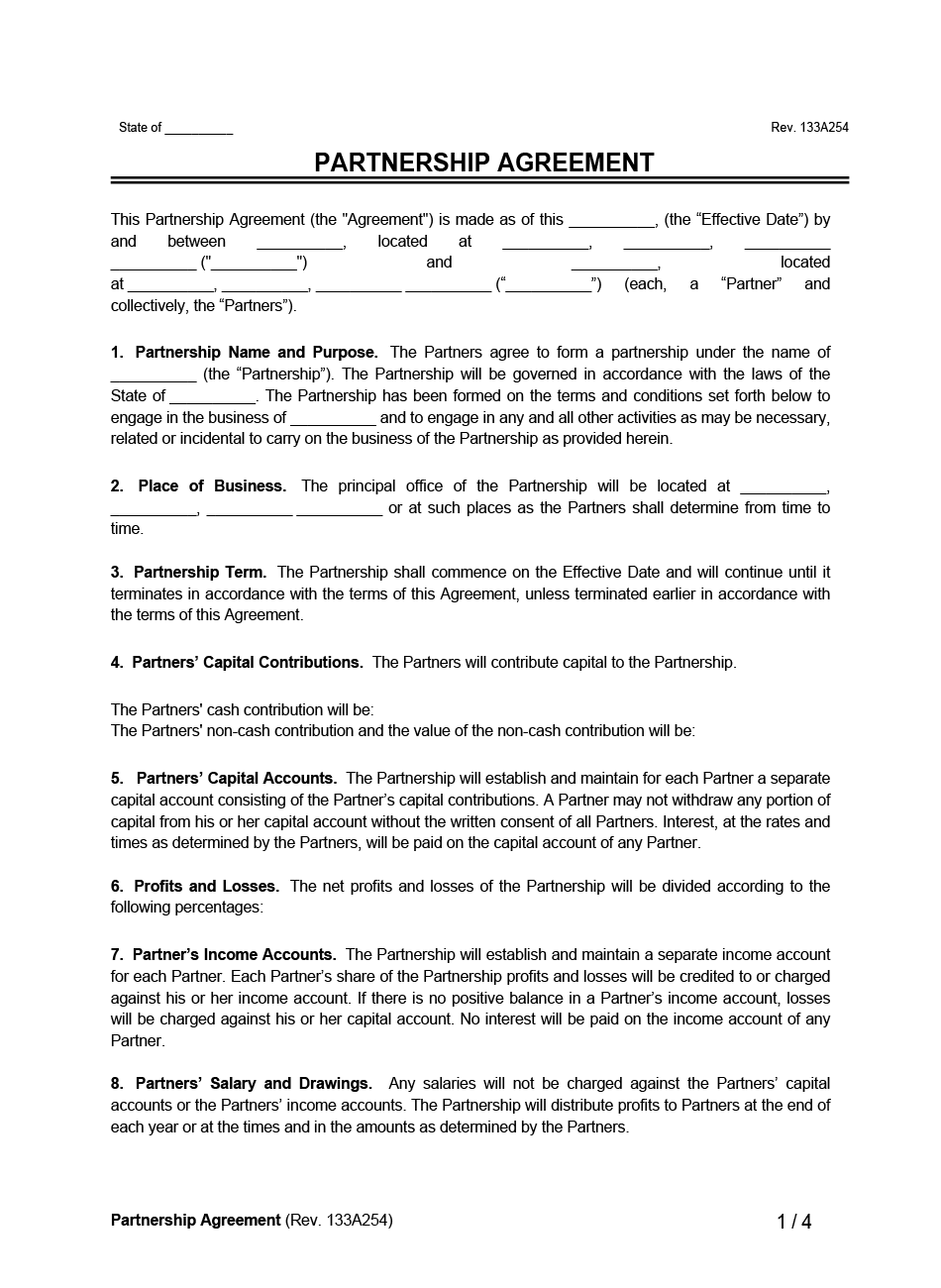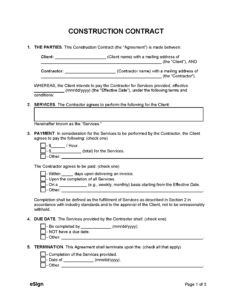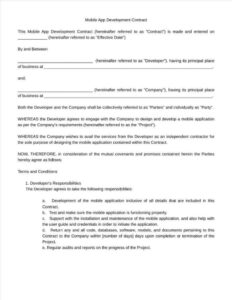Embarking on a new business venture with a partner is incredibly exciting. You’re fueled by shared vision, complementary skills, and a desire to build something amazing together. This journey is full of potential, promising growth, innovation, and mutual success. However, just like any significant undertaking, it comes with its own set of challenges, and preparing for them upfront can make all the difference in the world.
To truly set your partnership up for success and ensure that your shared vision remains clear and protected, establishing a solid foundation is absolutely critical. This is where a well-crafted partnership agreement comes into play. It’s not just a legal formality; it’s a living document that outlines the expectations, responsibilities, and protections for everyone involved, becoming the bedrock of your business relationship.

Why a Small Business Partnership Contract is Your Business’s Blueprint for Success
Think of your small business partnership contract as the architectural blueprint for your joint venture. Just as a building needs a detailed plan to stand strong and withstand the elements, your partnership needs a comprehensive agreement to guide its operations, resolve potential disagreements, and ensure long-term stability. Without one, you’re essentially building on shaky ground, leaving crucial elements to chance or unspoken assumptions, which can easily lead to misunderstandings down the line.
This vital document isn’t about distrust; it’s about clarity, protection, and foresight. It provides a roadmap for how decisions will be made, how profits and losses will be shared, and how potential conflicts will be handled. By addressing these critical points upfront, you minimize the risk of future disputes that could strain your professional relationship and even jeopardize the business itself. It helps define everything from daily operations to significant financial commitments, ensuring everyone is on the same page from day one.
Consider the various aspects of running a business together. Who is responsible for sales, and who handles the finances? What happens if one partner wants to invest more capital than the other? How will major strategic decisions be made? These are all questions that a robust partnership agreement addresses, providing clear answers and preventing situations where ambiguity could breed resentment or paralysis. It forces you and your partner to have frank discussions about potentially difficult topics while the relationship is still strong, rather than waiting until a crisis hits.
Key Elements to Include
- Identification of Partners and Business Name: Clearly state who the partners are and the legal name of the business.
- Contributions: Detail each partner’s initial capital contributions, assets, or services provided.
- Profit and Loss Distribution: Outline how profits and losses will be shared among partners.
- Management Responsibilities and Decision Making: Define roles, duties, and the process for making day-to-day and major business decisions.
- Dispute Resolution: Establish a clear process for resolving disagreements, perhaps through mediation or arbitration.
- Exit Strategies: Plan for scenarios such as a partner wishing to leave, retirement, disability, or death, including buyout provisions.
- Confidentiality and Non-Compete Clauses: Protect sensitive business information and prevent partners from competing against the business after leaving.
Defining contributions and outlining the distribution of profits and losses are often among the most sensitive but important discussions. Are contributions solely monetary, or do they include intellectual property, equipment, or even sweat equity? A clear breakdown ensures that each partner feels their input is valued and that the financial outcomes are equitable based on the agreed-upon structure. This transparency builds trust and avoids the perception of unfairness that can quickly erode a partnership.
Furthermore, thinking about dispute resolution and exit strategies might seem pessimistic when you’re just starting, but it’s incredibly pragmatic. Life happens, circumstances change, and disagreements can arise even in the best relationships. Having a predefined process for mediation or arbitration, or a clear method for a partner to buy out another, can save both the business and the relationship from complete collapse. It provides a fair and agreed-upon pathway forward, minimizing emotional distress and legal battles. Leveraging a small business partnership contract template can offer a fantastic starting point for these discussions, ensuring you cover all the essential ground.
Customizing Your Template: It’s Not One-Size-Fits-All
While a small business partnership contract template offers an invaluable starting point, it’s crucial to understand that it’s just that – a template. Every business partnership is unique, with its own specific dynamics, industry nuances, and individual partner needs. Simply filling in the blanks might cover the basic legal requirements, but it won’t necessarily capture the intricate details and unique agreements that make your particular partnership function smoothly and effectively. Your business deserves an agreement that truly reflects its identity and operational style.
Consider your industry. A partnership running a tech startup will have different needs and potential risks than one operating a local retail store or a professional services firm. Intellectual property rights, technology licensing, client confidentiality, or specific regulatory compliance might be paramount for some, while inventory management and physical asset division might be more critical for others. Tailoring your agreement to these specificities ensures that all relevant aspects of your unique operation are adequately addressed and protected.
Moreover, the personal dynamics between partners play a significant role. Do you have a silent partner who is purely an investor? Is one partner responsible for day-to-day management while another focuses on long-term strategy? Are there varying levels of experience or financial contribution that necessitate different levels of decision-making power or profit distribution? These are all factors that need to be explicitly spelled out in your customized agreement, going beyond what a generic template might offer.
This level of customization often benefits greatly from professional legal advice. While a template provides the structure, a lawyer specializing in business law can help you navigate complex legal jargon, identify potential pitfalls specific to your situation, and ensure that your final document is not only legally sound but also comprehensively protects your interests. Viewing this as an investment rather than an expense can save you significant time, money, and emotional stress in the long run, ensuring your agreement stands up to scrutiny should challenges arise.
A well-crafted partnership agreement isn’t a static document; it should evolve with your business. As your business grows, adapts to market changes, or even considers bringing in new partners, your partnership agreement might need to be reviewed and updated. Planning for future scenarios, even those that seem distant, ensures that your foundational document remains relevant and continues to serve its purpose effectively throughout the life of your partnership.
Entering a business partnership is a profound commitment, much like entering into any long-term relationship. Providing it with a robust and thoughtful legal framework from the outset doesn’t diminish the trust between partners; it enhances it by eliminating ambiguity and fostering a shared understanding of expectations and responsibilities. This proactive approach cultivates a sense of security, allowing you both to focus your energy on what truly matters: growing your business and achieving your shared goals.
By investing the time and effort into creating a comprehensive and customized partnership agreement, you are building a resilient foundation for your venture. This document becomes more than just legal text; it’s a testament to your collective foresight and commitment to each other’s success. It empowers you to navigate challenges confidently, celebrate victories harmoniously, and build a thriving enterprise that stands the test of time.



